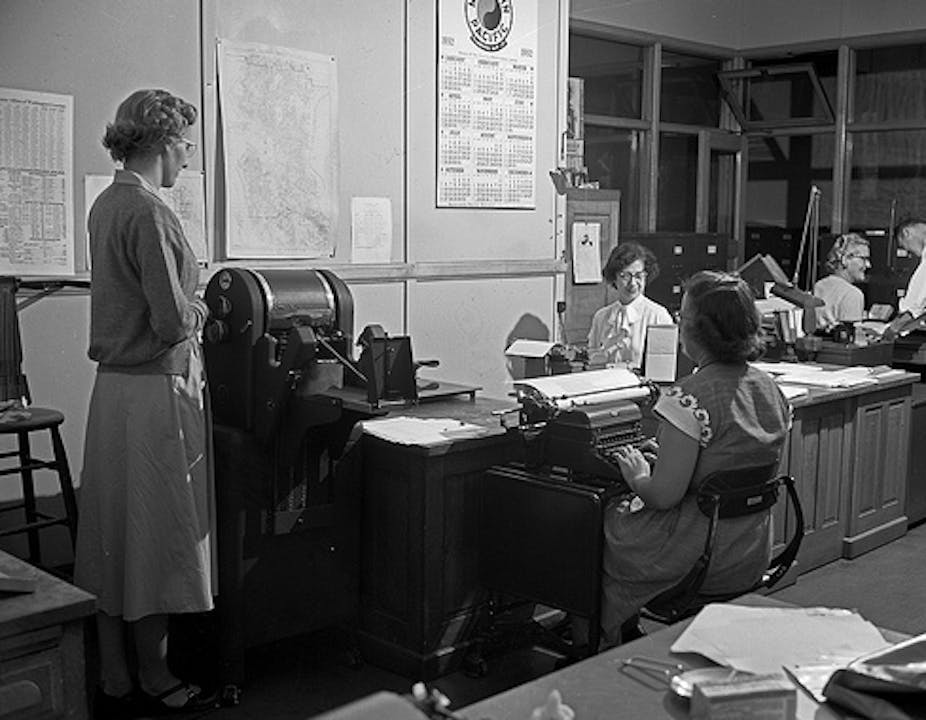The “equal pay for equal work” dream is yet to become a reality. Not only do women earn, on average, 17.6% less than men, there are worrying signs that this wage gap may be starting to increase.
What this means is that women accumulate less wealth over their careers and retire with less savings than men, relative to men in the same profession. Although salary is a clearly measurable career outcome, it is important to remember it is one only of the benefits that shapes women’s career outcomes.
The ability to obtain non-financial benefits such as administrative support, access to resources, access to influential networks, and developmental opportunities also affects women’s ability to be promoted and advance in their careers – yet women also obtain fewer of these resources than men.
Can this gender gap in economic capital be attributed to differences in how men and women negotiate? Certainly, that’s where part of the answer to this gap can be found.
Research consistently shows that women are more reluctant than men to initiate negotiations. And, when they do initiate negotiations, they undervalue their work. Women place less value on their work than men, setting lower targets for themselves before they start a negotiation.
As a result, they start a negotiation asking for less than men. They accept the first offer made to them, showing reluctance to negotiate a better deal. And, seemingly in anticipation of women’s lower aspirations, their negotiation opponents also offer them less than they offer to comparably qualified men. Each of these actions erodes women’s economic capital.
Is getting tough the answer? Recent research suggests that becoming more competitive is not a winning strategy for women. While they may close the economic capital gap, they risk opening a social capital gap, as illustrated by the research of Fiona Greig and Bowles, Babcock and Lai.
When women negotiate, they are perceived as more pushy, less likable and undesirable work colleagues. This loss of social capital has long-term consequences for women’s economic outcomes: a negative reputation is likely to spillover and impede problem-solving in future negotiations.
The accumulation of trust is a particularly important social outcome for organisational relationships. In day-to-day work relationships, trust is integral to building and maintaining the networks that women need to access the resources necessary for job performance and career progression.
In negotiations, trust underpins negotiators’ willingness to engage in information sharing and problem-solving, behaviours that are central to negotiators’ ability to build mutually beneficial outcomes. How, then, can women improve their economic outcomes without eroding trust?
I address this question in my research with Professor Carol Kulik of the University of South Australia. We have found that how women negotiate, and who they negotiate with, is critical to the accumulation of trust over the course of a negotiation.
Men appear relatively immune to whether women implement a competitive or an accommodating strategy. However, other women are highly sensitive to the gender-congruence of a female negotiator’s strategy: trust increases when female negotiators’ conform to gender stereotypes by implementing an accommodating strategy, but decreases when violating gender stereotypes by competing.
We have also found that women can preserve trust if they open negotiations by highlighting their “niceness” – their ability to work with others, and to foster team relationships – rather than their competence. By building a rapport first, they buffer themselves against the stereotype-incongruent action of highlighting their individual achievements and accomplishments.
Women need to think carefully about how they will negotiate for improved economic outcomes. While strategy is unimportant when they negotiate with men, it is critical that they work within gender stereotypes when they negotiate with other women.
However, the responsibility for preserving social capital while growing economic capital should not rest solely on the shoulders of women. Organisations can also take actions that reduce the shock value of women negotiating.
Research by Lisa Barron; Bowles, Babcok and McGinn; Ely and Meyerson; and Rousseau, Ho and Greenberg shows that when organisations provide clear guidelines on what is negotiable and when it is appropriate to negotiate, the gender gap in economic outcomes is removed.
By legitimating the act of negotiating, these strategies also remove the risk of incurring losses in social capital. Organisations that create a more inclusive and collaborative culture that encourages problem-solving rather than hard bargaining can also change the perception of what it takes to be an effective negotiator.
By shifting the perception of what it takes to negotiate effectively, this economic and social backlash against women can be reduced.
You can listen to Mara talk about this topic in detail here.

